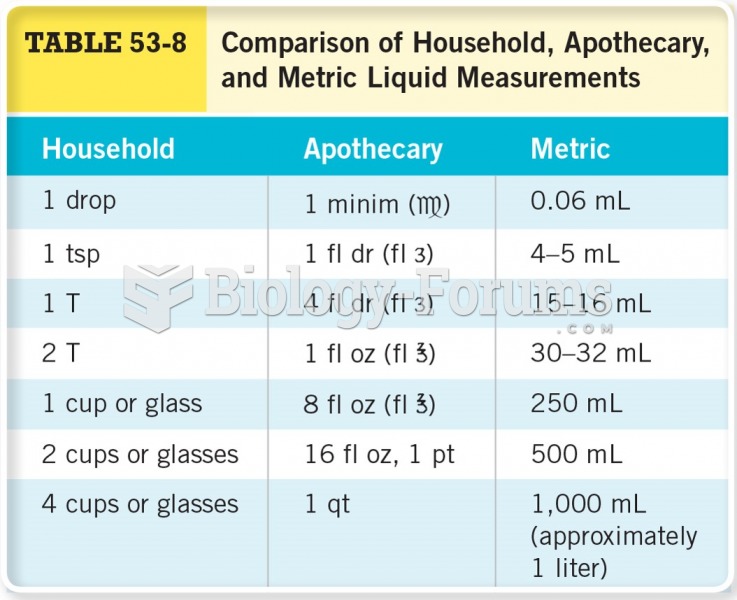|
|
|
If all the neurons in the human body were lined up, they would stretch more than 600 miles.
Bacteria have flourished on the earth for over three billion years. They were the first life forms on the planet.
A serious new warning has been established for pregnant women against taking ACE inhibitors during pregnancy. In the study, the risk of major birth defects in children whose mothers took ACE inhibitors during the first trimester was nearly three times higher than in children whose mothers didn't take ACE inhibitors. Physicians can prescribe alternative medications for pregnant women who have symptoms of high blood pressure.
The training of an anesthesiologist typically requires four years of college, 4 years of medical school, 1 year of internship, and 3 years of residency.
In most cases, kidneys can recover from almost complete loss of function, such as in acute kidney (renal) failure.







